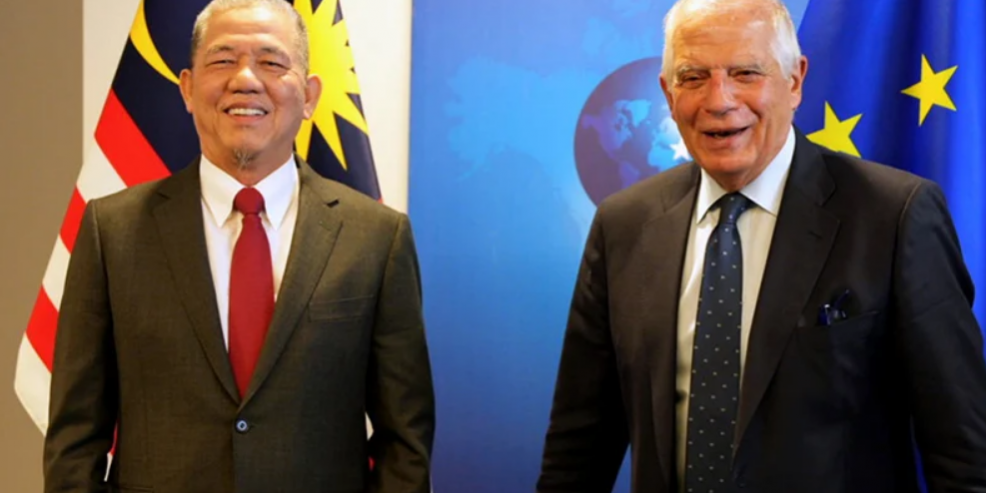The European Union is willing to work with the Council of Palm Oil Producing Countries (CPOPC) to address its concerns over the EU’s deforestation regulation, says deputy prime minister Fadillah Yusof.
Fadillah, who is also the plantation and commodities minister, said the five EU leaders he met in Brussels yesterday took a serious view of the council’s concerns, including the impact of the European Union Deforestation Regulation (EUDR) on smallholders in Malaysia and Indonesia, Bernama reported.
“I am generally satisfied, especially because the majority of EU leaders we met today agreed with our views,” he said in a statement after the meeting.
“They have listened to and understood our concerns regarding the difficulties in complying with the EUDR.”
Fadillah said Malaysia and Indonesia want the EU to acknowledge the efforts made by both countries.
For Malaysia, he said, this includes initiatives to halt planting on peatlands, tightening regulations on existing oil palm plantations on peatlands, banning the conversion of protected forest areas for oil palm cultivation, and committing to provide a palm oil plantation map for public access.
The meeting was attended by prominent EU officials such as the EU commissioner for environment, oceans and fisheries Virginijus Sinkevicius, and its representative for foreign affairs and security policy, Josep Borrell-Fontelle.
Fadillah is on an eight-day joint trade mission with Indonesian coordinating minister for economic affairs Airlangga Hartato to Brussels to defend the palm oil industry.
“In principle, we (participants at the meeting) agreed to engage, whether through dialogue, task forces, or any other agreed-upon mechanism,” Fadillah said.
He said any future mechanisms should include producer countries, industry participants, NGO representatives, and smallholders to ensure clarity in the guidelines issued and to avoid marginalising any party.
Fadillah also said EU representatives will visit Indonesia and Malaysia to meet with relevant parties.
“We will have more detailed discussions regarding the technical aspects that we raised. It is expected that they will take into account our views when issuing any (new) guidelines,” he said.










